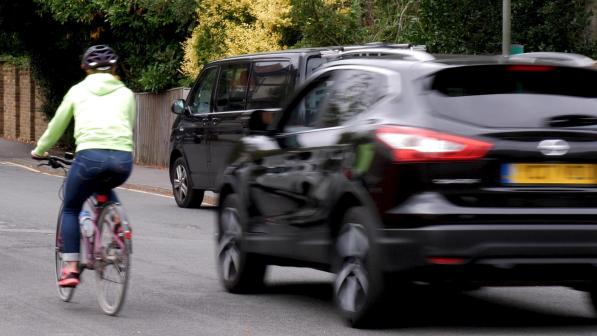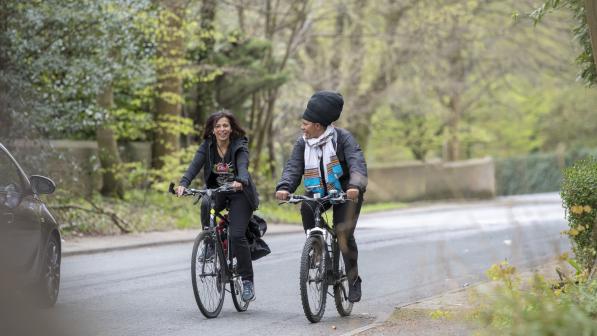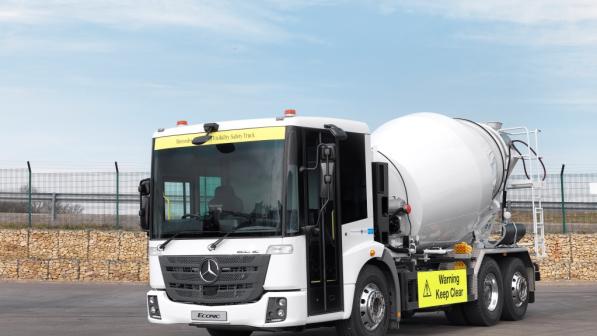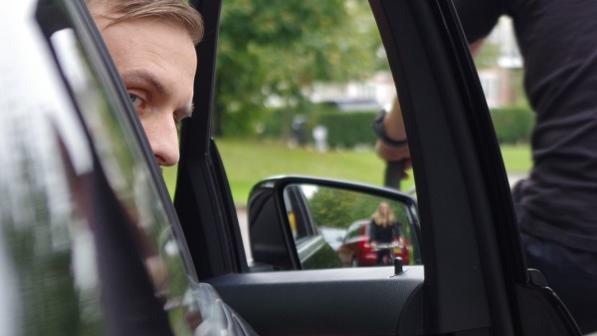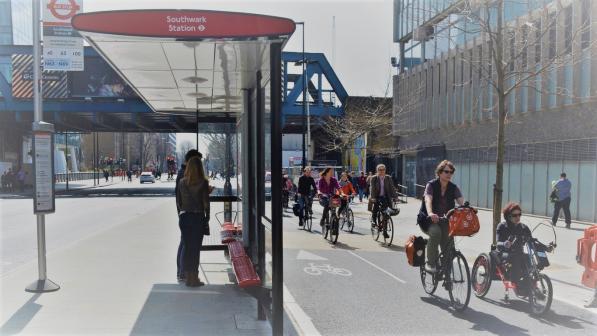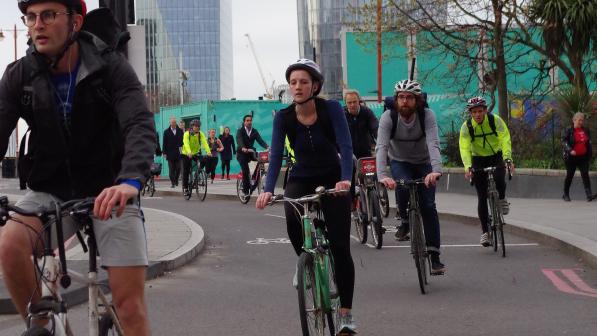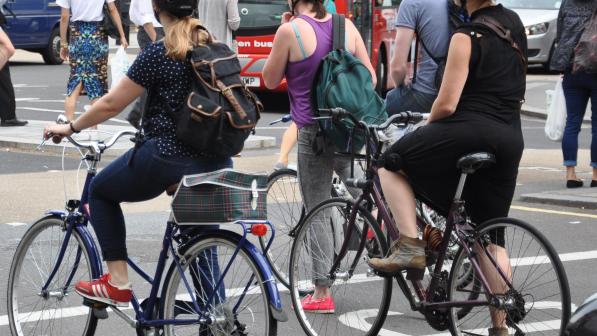Review road traffic offences and penalties to make cycling safer: why wouldn’t you?

Road safety laws are aimed at reducing casualties and improving road safety. Those aren’t my words, they’re set out in print in the Government’s document calling for evidence to inform the Department for Transport’s (DfT) Cycling and Walking safety review.
You can find them at para 5.3, under the section on the law and rules of the road, which ends with a consultation question on areas of the law or rules relating to road safety and their enforcement which could be used to improve cycling and walking safety, while promoting more active travel.
Groundhog Day
I’ve just drafted our detailed response to that question, and doing so it felt a bit like Groundhog Day. I was explaining why there needed to be a comprehensive review of all road traffic offences and penalties, but hadn’t I said all of this before?
Of course I had but, silly me, that was to the Ministry of Justice (MoJ), and it’s the DfT which is now asking the question.
Confused? Bear with me while we have a quick recap.
Five for nought
First up to the crease in May 2016 was Justice Secretary Chris Grayling MP, announcing that he “wanted to make our roads safer”, and that the Government intended to launch “a full review of all driving offences and penalties”.
Grayling was replaced as Justice Secretary a year later by Michael Gove, who lasted a year before giving way to Elizabeth Truss. Two down and no review.
Rather than fussing with a full review, Truss decided to focus on driving offences and penalties relating to causing death or serious injury. She launched a limited consultation, which was primarily concerned with maximum prison sentences in the very worst cases, ignoring the wider problems that affect the vast majority of road traffic cases and occupy the courts on a daily basis.
Truss didn’t last long before being subbed for David Liddington, who in turn quickly made way for David Gauke. Four years on, five Justice Secretaries later, and we still haven’t had the full review. Oh, and the limited recommendations following the Truss review still haven’t been implemented.
But there’s a gap in the law!
Jump forward to September last year, and the Government’s announcement that they were going to carry out an urgent review “following a series of high profile incidents”. At last some action!
Oh, but wait a minute, that was different. What was urgently needed was a review of cycling offences. The DfT must find time for that, but other road traffic offences? That’s an MoJ issue apparently, and of course we’re all awfully busy.
What’s needed
Our response to the DfT’s question about law changes relating to road safety and enforcement calls for a comprehensive review of road traffic offences and penalties, including:
- Reviewing the legal definitions of careless and dangerous driving, and whether this is the correct framework to determine and classify irresponsible and dangerous behaviour on our roads
- More frequent use of driving disqualifications and for longer periods, to protect the public, including closing the ‘exceptional hardship’ loophole
- Introducing a new offence of causing death or serious injury by car dooring
- Increased penalties for ‘failing to stop’ offences where the driver must or should have known there was a possibility of a serious or fatal injury
These are gaps or failures in the law which Cycling UK believes need urgent attention. I made the same points to the MoJ two years ago when responding to the Truss consultation and, as I’ve said many times, waiting for action from the MoJ has been like Waiting for Godot.
Government ping pong
If the Government is serious about addressing cycle safety, then one of the issues they must address is road safety laws, and before anyone says “but what about funding, and infrastructure, and policing, and education?” Yes, yes and yes again, and we’ve highlighted all of these with our ‘Cycle safety: make it simple’ report.
But safe road users are a fundamental element of a ‘Safe Systems’ approach, and effective road traffic laws are instrumental in achieving safe road users. That’s because it’s essential that the legal framework makes it clear that it is unacceptable to endanger other road users, and that road crime is real crime.
What we can’t have, however, is ping pong between government departments without any joined-up thinking.
Last year, following the Truss review, the MoJ announced that it proposed to create a new offence of causing serious injury by careless driving.
The ministry ignored submissions from Cycling UK and others that it needed to consider whether the ‘careless’ and ‘dangerous’ distinction and definitions, whether applied to driving or cycling, create an effective legal framework for categorising and dealing with irresponsible behaviour by road users which endangers others.
Separately, the DfT is about to launch a consultation on new careless and dangerous cycling offences, and whether yet more ‘careless’ and ‘dangerous’ behaviour offences should be added, without looking at what its adding them to or asking whether it’s fit for purpose.
And somehow it seems that cycling offences are a DfT matter, but other road traffic offences are an MoJ matter, except that the DfT has asked about what law changes are needed to make cycling and walking safer, so we’ve told them, and we now need the DfT and MoJ to start talking to each other.
Why wouldn’t you …?
So, why wouldn’t you link up the transport and justice departments when looking at how road traffic laws can improve road safety?
And why wouldn’t you review all the offences dealing with irresponsible behaviour by road users, rather than cherry-picking which to look at by reference to road user type?
And why wouldn’t you ask whether something was working before bolting new offences onto a flawed framework?
Perhaps just doing all of the above is too obvious – too simple – which is exactly why we’re campaigning with a Cycle safety: make it simple message, but we really need your support.
How you can help
We’ve already sent our executive summary report to the Government, containing all of our headline recommendations including reviewing road traffic offences. Our full response will be sent within the next two weeks.
However, we need as many people as possible to support what we’re calling for to have a chance of making this a reality.
So far, almost 5,000 fantastic people have done so, and you can join them by going to our Cycle safety: make it simple campaign to take action, sending an email to the DfT adding your voice to our recommendations. At the same time, you can also send an email directly to your MP specifically about the need for a review of road traffic offences and penalties.
But you’ve only got until 1 June, after which the consultation closes.
If you’ve already given your support to this campaign, we’d implore you to do just one more thing – send someone you know an editable e-card telling them about this campaign. We’ve made it really simple for you to do this, and you can send the e-card to up to 10 people.
If everyone who’s supported this campaign managed to nudge one more person to respond, our voice would be that much louder – and why wouldn’t you want that?

